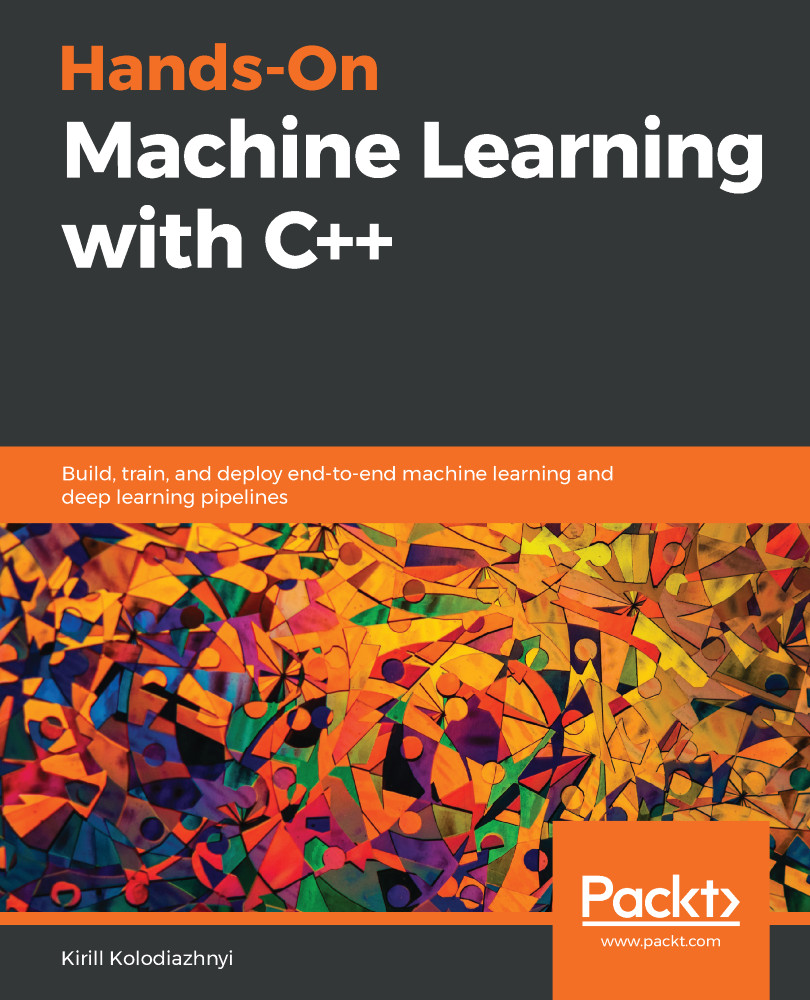There are a variety of file formats used for datasets, and not all of them might be supported by libraries. For using data from unsupported formats, we might need to write custom parsers. After we read values to regular C++ containers, we usually need to convert them into object types used in the machine learning framework we use. As an example, let's consider the case of reading matrix data from files into C++ objects.
-
Book Overview & Buying

-
Table Of Contents

Hands-On Machine Learning with C++
By :

Hands-On Machine Learning with C++
By:
Overview of this book
C++ can make your machine learning models run faster and more efficiently. This handy guide will help you learn the fundamentals of machine learning (ML), showing you how to use C++ libraries to get the most out of your data. This book makes machine learning with C++ for beginners easy with its example-based approach, demonstrating how to implement supervised and unsupervised ML algorithms through real-world examples.
This book will get you hands-on with tuning and optimizing a model for different use cases, assisting you with model selection and the measurement of performance. You’ll cover techniques such as product recommendations, ensemble learning, and anomaly detection using modern C++ libraries such as PyTorch C++ API, Caffe2, Shogun, Shark-ML, mlpack, and dlib. Next, you’ll explore neural networks and deep learning using examples such as image classification and sentiment analysis, which will help you solve various problems. Later, you’ll learn how to handle production and deployment challenges on mobile and cloud platforms, before discovering how to export and import models using the ONNX format.
By the end of this C++ book, you will have real-world machine learning and C++ knowledge, as well as the skills to use C++ to build powerful ML systems.
Table of Contents (19 chapters)
Preface
Section 1: Overview of Machine Learning
 Free Chapter
Free Chapter
Introduction to Machine Learning with C++
Data Processing
Measuring Performance and Selecting Models
Section 2: Machine Learning Algorithms
Clustering
Anomaly Detection
Dimensionality Reduction
Classification
Recommender Systems
Ensemble Learning
Section 3: Advanced Examples
Neural Networks for Image Classification
Sentiment Analysis with Recurrent Neural Networks
Section 4: Production and Deployment Challenges
Exporting and Importing Models
Deploying Models on Mobile and Cloud Platforms
Other Books You May Enjoy
